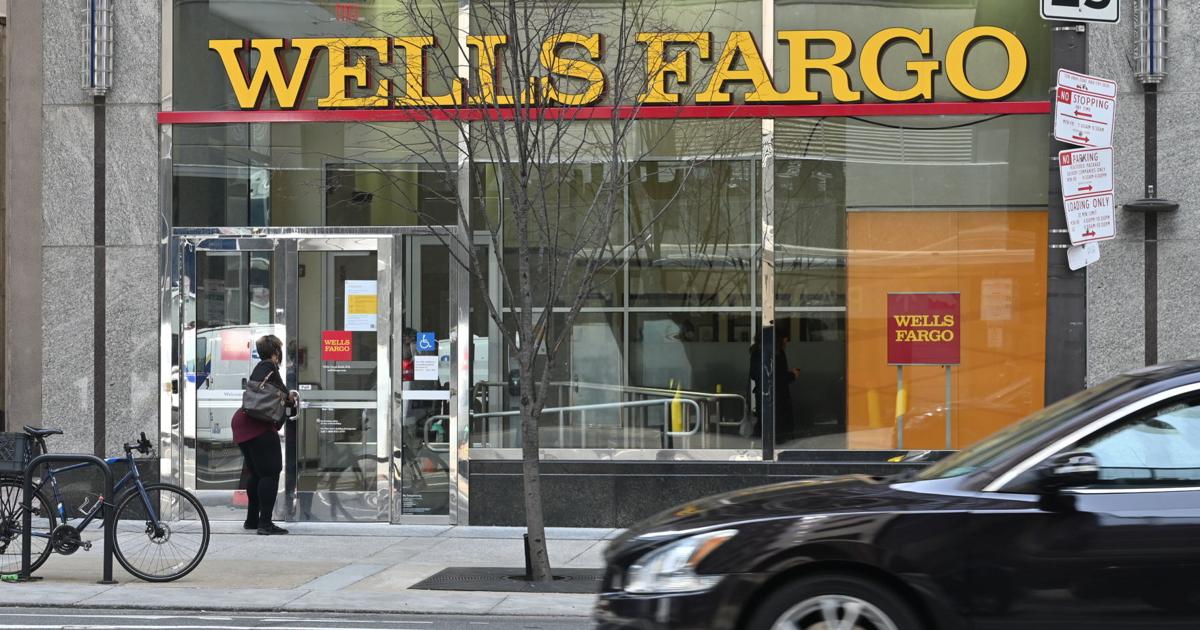In 2020, Wells Fargo approved 47% of mortgage refinance applications from black homeowners nationwide, compared to 72% of white homeowners, according to an analysis of federal mortgage statistics by Bloomberg News.
By comparison, in 2020, JPMorgan Chase & Co. approved 81% of black refinance loans, compared to 90% for white refinance loans; Bank of America Corp. endorsed 66% of black applicants, compared to 78% of white applicants in the same year; and Rocket Mortgage, LLC approved 79% of black homeowner refinance loans, compared to 86% of white homeowner refinance loans, according to Bloomberg News.
In a low interest rate environment, mortgage refinancing is important during a pandemic-induced economic downturn because it can reduce a homeowner’s monthly mortgage payment, cash flow, and even reduce risk. of default of payment. The Federal Reserve said earlier this month that it would raise rates several times this year. And many people will miss the refinancing boom.
For example, if someone had a $100,000 30-year fixed rate mortgage for three years with an interest rate of 6.5% and refinanced at a rate of 5%, you would save $114 per month or approximately $29,000 for the term of the loan. , according to Freddie Mac Mortgage. Closing costs can be prepaid or rolled into your monthly mortgage payment
“We believe this story ignored critical information about Wells Fargo’s loans to Black homeowners and all of our efforts to help meet the homeownership needs of diverse customers, and relied on a analysis designed to present a biased picture of our lending performance,” a Wells Fargo spokesperson said. “Here are some important facts that provide additional context for our support for Black homeowner mortgages:”
Wells Fargo helped more black homeowners refinance their mortgages in 2020 than any of the other biggest banks.
The 83% increase in our refinance loans to Black homeowners in 2020 compared to 2019 was also by far the largest gain among the largest banks.
In 2021, we have increased this total by 88%.
In 2020, if you include loans originated by Wells Fargo and loans we purchased from matching sellers, Wells Fargo funded twice as many loans to black customers as the second-largest bank lender.
Additionally, over the past decade (2011-2020), Wells Fargo has helped as many black families buy homes as the next three largest bank lenders combined.
“Most importantly, we are confident that our underwriting practices are applied consistently, regardless of customer race or ethnicity,” the Wells Fargo spokesperson said.
A group of US senators wrote a letter to the Consumer Financial Protection Bureau, expressing their concerns about Bloomberg’s story.
“We continue to monitor mortgage players’ compliance with the law and will take public action where appropriate,” a spokesperson for the office said.
Created in 2010, under the Obama administration, the Consumer Financial Protection Bureau’s mission is to make sure that consumer financial markets work for consumers, suppliers and the economy. The bureau also protects consumers against unfair, deceptive and abusive practices and can take action against companies that break the law.
Separately, Aaron Braxton, who is black and tried to refinance his mortgage at Wells Fargo, filed a March 18 lawsuit in U.S. District Court in Northern California alleging racial discrimination, The New York Times reported. . Braxton links his suit to the Bloomberg report.
In the lawsuit, Braxton’s lawyers say Wells Fargo’s lending algorithms amplified the historic racism of the US financial system.
“We are currently reviewing the recent California filing and have no comment at this time,” a Wells Fargo spokesperson said.
Earlier this month, the Federal Reserve Bank of Philadelphia released a report stating that while residential mortgage refinancing activity grew more than 200% in Pennsylvania, New Jersey and Delaware in 2020 during the pandemic, the growth rate of blacks and weak and moderate property owners was between 85% and 178%. The growth rate of refinancing for black and weak and moderate homeowners was about 50% to 75% of the growth rate for all borrowers.
Granted, the money saved from a refinanced mortgage is often used to pay for home renovations, higher education, starting a business, or buying an additional home.
According to Bloomberg, over the past two years, American homeowners have refinanced nearly $5 trillion, saving white homeowners about $3.8 billion a year. By comparison, black homeowners saved $198 million a year, over the same period. As the Federal Reserve banks begin to raise interest rates, many bank customers will miss the opportunity to refinance their mortgages and save money.
In the Bloomberg story, several Wells Fargo customers reported on falling property assessments in black neighborhoods and phone calls from mostly black zip codes being moved to white offices instead of a closer office in proximity.
In 2012, Wells Fargo agreed to pay $184 million to settle charges brought by the United States for unfairly pushing black and Hispanic homeowners into subprime mortgages. The bank then charged them higher fees and interest rates.
On Wednesday, Consumer Financial Protection Bureau Director Rohit Chopra released a statement on discriminatory property assessment and assessment fairness. The office’s task force reviewing it released a report this week.
“Today’s report underscores the critical importance of fair and accurate valuations in residential real estate,” Chopra said. “Discriminatory home appraisals, whether calculated by an algorithm or performed in person, undermine longstanding goals of fair housing and fair lending across our country. I appreciate the work of Secretary Marcia Fudge and Ambassador Susan Rice in leading this effort. The CFPB will take a number of actions to advance the work of the working group.

